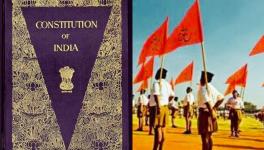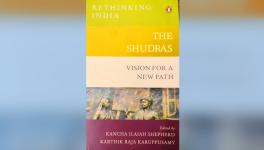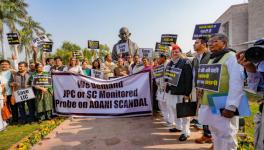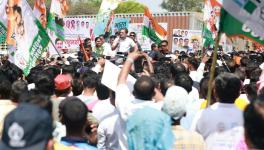Congress: A Spent Force in Tamil Nadu?

Ever since the Congress party was routed in the 1967 elections to the Tamil Nadu Assembly, it has had very little sway in the state. The party has become an insignificant player, to say the least, and is left to piggybacking on the two Dravidian parties in one election after another over the last five decades.
With factional feuds and infighting becoming an inseparable part of the party organisation, a revival is highly unlikely in the near future. The growing number of factions and the reluctance of the central leadership in setting things right have worsened its plight over decades.
The party leadership seems to less worried about its plummeting vote share – around 15% in 1991 to less than seven per cent in 2016. The party’ performance has been dismal in 2011, 2014 and 2016, with only the 2019 general elections being a ‘face saving’ measure.
The Congress has been contesting polls as part of an alliance led by the Dravida Munnetra Kazhagam (DMK) or the All India Anna Dravida Munnetra Kazhagam (AIADMK) since 1971, except 1989. Its dependence on the Dravidian giants have only eroded the party’s base in many of its strongholds.
A ROUGH RIDE SINCE 1967
The party has never been able to make any sort of come back since the setback it suffered in 1967. The party had managed to win only 51 seats, with the legendary K. Kamaraj losing from his hometown. The election was dominated by the anti-Hindi imposition protests and a famine which blew them away.
The election saw the dawn of Dravidian party rule in the state, which continues uninterrputed and without challenge.
The split in the Indian National Congress (INC) in 1969 saw a change in the state’s machinery. The 1971 elections witnessed the faction led by Indira Gandhi desisting from contesting the assembly polls. The K. Kamaraj led Indian National Congress (Organisation) contested in 201 seats and won 15 with a 35% vote share with the DMK returning to power.
Since, the party has been unable to make any monumental impact in polls in the state with its vote-share continuing to deteriorate. The party secured a 20.9% vote share in 1980 while contesting alongside the DMK, while it managed to secure 19.8% in 1989 while fighting alone.
After winning the 1991 elections with the AIADMK – after the demise of Rajiv Gandhi – the party headed for a split in 1996. G.K. Moopanar, the known trouble-shooter of the party, formed the Tamil Maanila Congress (TMC) after the INC leadership decided to ally with an AIADMK which was marred with a barrage of allegations.
The DMK-TMC combine romped home with the Congress returning empty handed, with late Chief Minister J. Jayalalithaa suffering a defeat. The TMC became the opposition party and the Congress never recovered.
In 2001, the Congress and the TMC together garnered less then ten per cent of the vote share and won 30 seats. The 2006 results sprang a surprise with both the DMK and AIADMK unable to get a simple majority. The DMK formed the government with 98 seats with the outside support of the Congress, which had 34 seats. The party, however, has suffered three successive defeats since then.
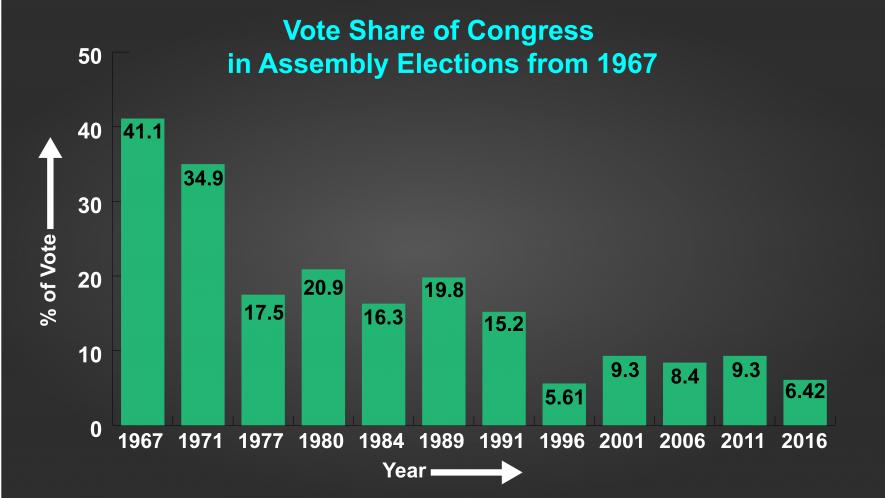
INC did not contest in 1971 assembly polls; INC(O) contested. Courtesy: Prakash R
In 2001, both, the INC and TMC contested as AIADMK allies. The vote percent mentioned is the share of both parties.
The party has not managed to secure more than a ten per cent voteshare in five state elections since 1996. The drop in votes, on occasion, has been due to the anti-incumbency faced by its ally, but the same cannot be the only reason for the erosion.
The change of guard on multiple occasions has had hardly any positive implications either. Two splits, once in 1996 by G.K. Moopanar, and in 2014 by his son G.K. Vasan, have added to the agony of the party.
TRIPLE DEFEAT
The decimation of the Congress was not a surprise in the 2011 and 2016 assembly elections and in the 2014 General Elections. The party contested alongside the DMK in 2011 and 2016 while it fought alone in 2014. The 2019 general election victory is the only solace for the party in recent times.
In 2011, the party contested in 63 seats and returned with a meagre five victories, garnering a vote share of 8.4%. The 2009 war between the government and the Liberation Tigers of Tamil Eelam (LTTE), in Sri Lanka, and its support by the Centre, then led by the Congress, were prominent issues during the elections. The elections saw the defeat of the DMK-Congress combine with the latter suffering a huge setback.
Relations between the DMK and Congress turned bitter, with both the parties deciding to go solo in the 2014 general elections. Both drew a blank, with the Congress managing a meagre 4.52% votes from all the 39 constituencies it contested from.
The year 2016 was comparatively better: it won eight of the 41 contested seats with a 6.42% vote share. The party was considered to be the weak link in the DMK alliance, hampering the prospects of the former. The Peoples’ Welfare Front (PWF) was also accused of splitting the anti-incumbency votes, thereby favouring the AIADMK.
‘JUMBO’ COMMITTEE WITH ELECTION AROUND THE CORNER
The party is gearing up for the 2021 assembly elections by revamping its organisational setup and announcing a ‘jumbo’ committee. The national leadership announced a committee of more than 450 members for the elections, including 32 vice-presidents, 57 general secretaries and 104 secretaries.
In addition, the party has four working presidents appointed to balance regional and communal equations.
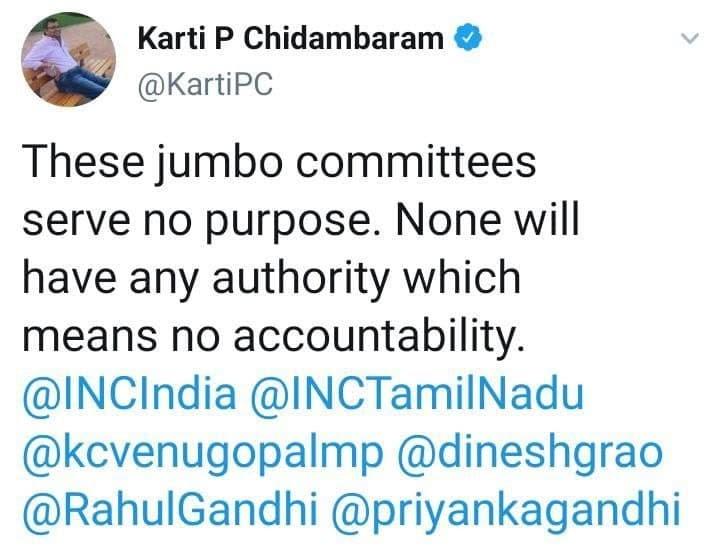
Image Courtesy: Prakash R
Dissenting voices came from within, however, with Karti P. Chidambaram, the MP from Sivaganga, questioning the accountability of the committee. Fitting in so many members was attributed to the existing group wars within the party.
The party has been lacking a unifying face with each new Tamil Nadu Congress Committee (TNCC) reportedly complaining of a lack of support from other factions. The growing number of factions has led to the undoing of the party, with more reliance on the Dravidian parties also eroding its base.
WHAT LIES AHEAD?
Rahul Gandhi’s visit to see Jallikattu, the bull-taming game, has been deemed political by many observers. The DMK’s reluctance to allocate more seats to its allies has been mentioned by many, including second-rung leadership like Udhayanidhi Stalin.
Given the present situation, the an alliance with the DMK seems all but done. However, the party’s bargaining capacity has been drastically reduced, with its performance in Bihar an uncomfortable truth. The party has now been reduced tp pleading, with Mani Shankar Aiyar saying that the Congress can now only ask for seats and that the DMK has to decide.
The DMK is reportedly adopting a tough approach in seat allocation, exacerbating their worries. The presence of the two Left parties, the Viduthalai Chiruthaigal Katchi (VCK) and the Vaiko-led Marumalarchi DMK will reflect in the seat-sharing arrangement.
The party may have to settle for lesser seats given the fact that fighting alone is definitely not on the cards. Any decision to contest alone, even to save pride, could prove suicidal.
Get the latest reports & analysis with people's perspective on Protests, movements & deep analytical videos, discussions of the current affairs in your Telegram app. Subscribe to NewsClick's Telegram channel & get Real-Time updates on stories, as they get published on our website.












